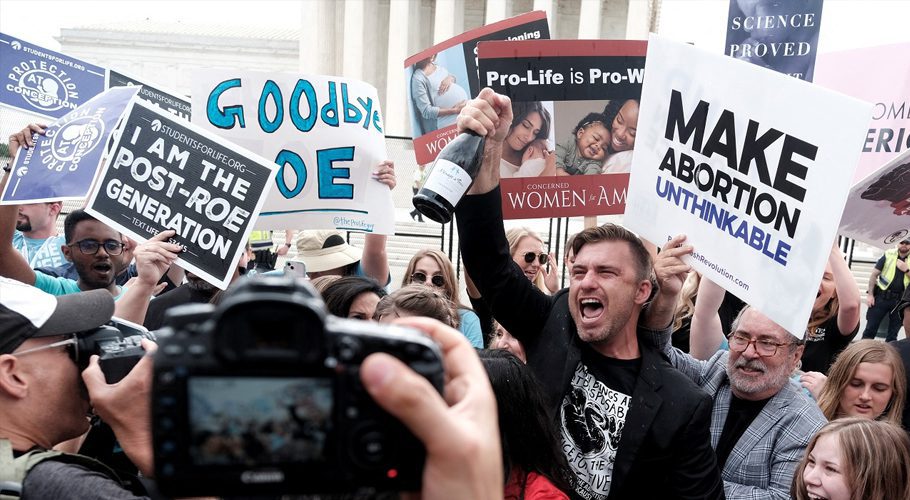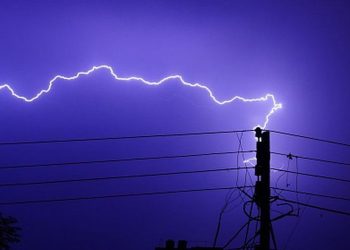WASHINGTON: The US Supreme Court on Friday took the dramatic step of overturning the landmark 1973 Roe v. Wade ruling that recognized a woman’s constitutional right to an abortion and legalized it nationwide, handing a momentous victory to Republicans and religious conservatives who want to limit or ban the procedure.
The court, in a 6-3 ruling powered by its conservative majority, upheld a Republican-backed Mississippi law that bans abortion after 15 weeks. The vote was 5-4 to overturn Roe, with Chief Justice John Roberts writing separately to say he would have upheld the Mississippi law but not taken the additional step of erasing the precedent altogether.
The justices held that the Roe v. Wade decision that allowed abortions performed before a fetus would be viable outside the womb – between 24 and 28 weeks of pregnancy – was wrongly decided because the U.S. Constitution makes no specific mention of abortion rights.
A draft version of the ruling written by conservative Justice Samuel Alito indicating the court was likely to overturn Roe was leaked in May, igniting a political firestorm. Friday’s ruling authored by Alito largely tracked his leaked draft.
“The Constitution makes no reference to abortion, and no such right is implicitly protected by any constitutional provision,” Alito wrote in the ruling.
Roe v. Wade recognized that the right to personal privacy under the U.S. Constitution protects a woman’s ability to terminate her pregnancy. The Supreme Court in a 1992 ruling called Planned Parenthood of Southeastern Pennsylvania v. Casey reaffirmed abortion rights and prohibited laws imposing an “undue burden” on abortion access.
“Roe was egregiously wrong from the start. Its reasoning was exceptionally weak, and the decision has had damaging consequences. And far from bringing about a national settlement of the abortion issue, Roe and Casey have enflamed debate and deepened division,” Alito added.
By erasing abortion as a constitutional right, the ruling restores the ability of states to pass laws prohibiting it.
Twenty-six states are seen as either certain or likely now to ban abortion. Mississippi is among 13 states already with so-called trigger laws designed to ban abortion if Roe v. Wade were to be overturned.
The court’s three liberal justices – Stephen Breyer, Sonia Sotomayor and Elena Kagan – issued a jointly authored dissent.
“Whatever the exact scope of the coming laws, one result of today’s decision is certain: the curtailment of women’s rights, and of their status as free and equal citizens,” they wrote.
As a result of Friday’s ruling, “from the very moment of fertilization, a woman has no rights to speak of. A state can force her to bring a pregnancy to term, even at the steepest personal and familial costs,” the liberal justices added.
Mississippi’s law had been blocked by lower courts as a violation of Supreme Court precedent on abortion rights.
Abortion is likely to remain legal in liberal states. More than a dozen states currently have laws protecting abortion rights. Numerous Republican-led states have passed various abortion restrictions in defiance of the Roe precedent in recent years.
Before the Roe decision, many states banned abortion, leaving women who wanted to terminate a pregnancy with few options. As a result of Friday’s ruling, women with unwanted pregnancies in large swathes of America may face the choice of traveling to another state where the procedure remains legal and available, buying abortion pills online or having a potentially dangerous illegal abortion.
Overturning Roe v. Wade has long been a goal of Christian conservatives and many Republican officeholders.































